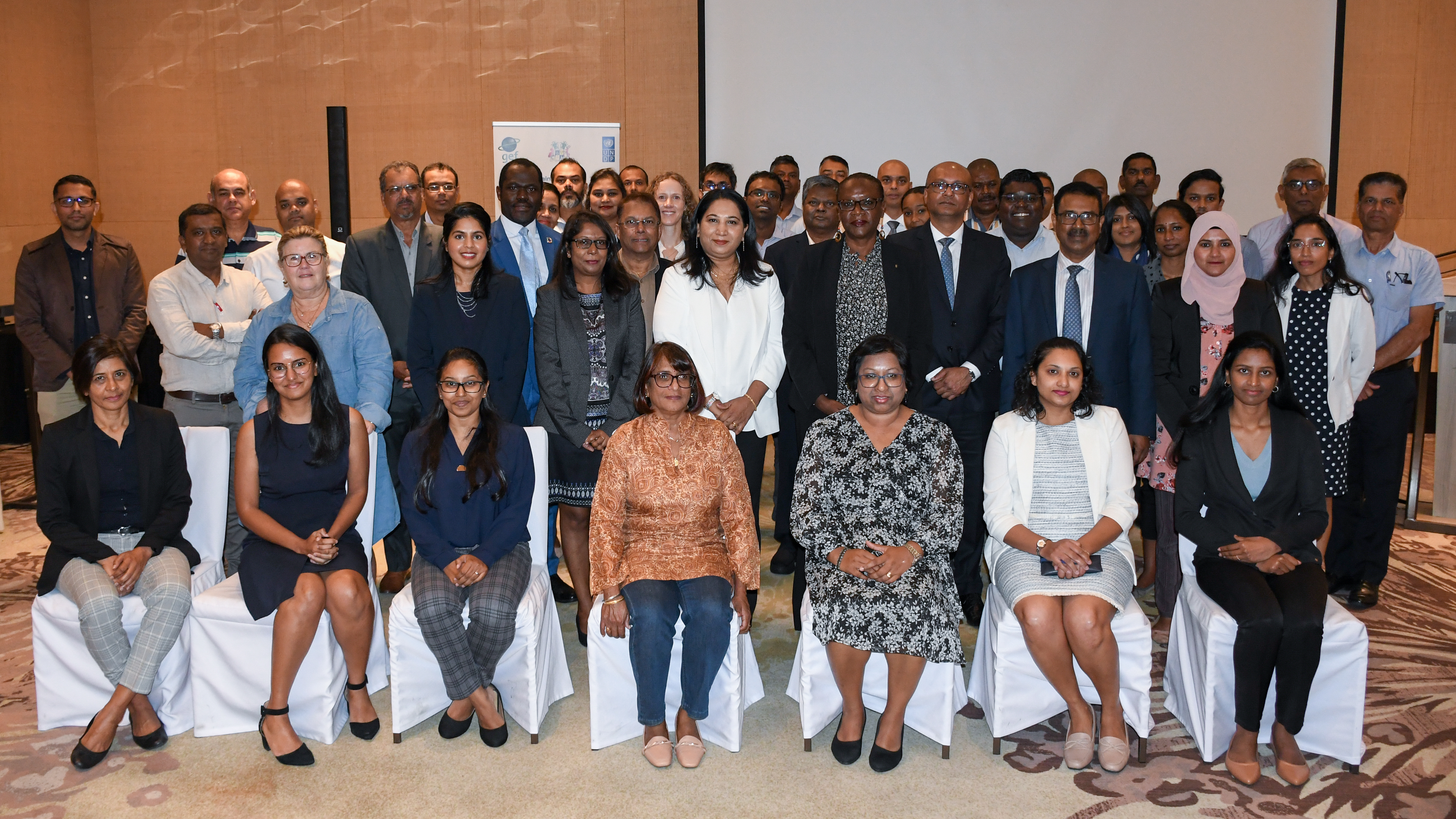The main objective of the project is to scale up the adoption of sustainable land management and to put the country on the path of Land Degradation Neutrality
Inception of the Mainstreaming Sustainable Land Management and Biodiversity in the Republic of Mauritius project
September 14, 2022

Various participants to the inception workshop which aimed at presenting, discussing and reviewing the project’s implementation arrangements, log frame and work plan
The Mainstreaming Sustainable Land Management and Biodiversity in the Republic of Mauritius project was officially kick started during an inception workshop held on 8 September 2022. This project aimed at containing land degradation, restoring soil and achieving land degradation neutrality in Mauritius and Rodrigues, has a budget line of USD 10.6M, with the Government of Mauritius and the Global Environment Facility (GEF) as main donors. It will be nationally implemented by the Ministry of Agro-Industry and Food Security Forest Service Division, with the support of the United Nations Development Programme Country Office in Mauritius, and the collaboration of public, parastatal and private stakeholders; NGOs, and members of the community.
Rapid urbanisation, changes in land use and unsustainable agricultural practices are some of the causes of land degradation in the Republic of Mauritius, where only 25% of the land mass is still covered with forests. Exacerbated by climate-change-driven droughts, fires, floods and sea level rise, land degradation causes ecosystem services losses estimated at USD 16 million annually. One way to curb the problem is to achieve Land Degradation Neutrality (LDN), which has been defined by the United Nations Convention to Combat Desertification as “a state whereby the amount and quality of land resources, necessary to support ecosystem functions and services and enhance food security, remains stable or increases within specified temporal and spatial scales and ecosystems.”
The main objective of the Mainstreaming Sustainable Land Management and Biodiversity in the Republic of Mauritius Project is to scale up the adoption of sustainable land management (SLM) and to put the country on the path of Land Degradation Neutrality (LDN). The key results targeted are (i) to secure an additional 2,063 ha of land under improved sustainable land management regime; (ii) achieve Land Degradation Neutrality targets; (iii) develop an Integrated Landscape Management (ILM) plan, and (iv) adopt incentive mechanisms to ensure sustainable financing of sustainable land management practices. Promoting enhanced food security, sustainable agriculture and the restoration of terrestrial ecosystems, this project will also allow to sequestrate around 877, 500 tons of carbon dioxide annually, thus contributing to fighting climate change.
Achieving sustainable land management is a cross-sectoral issue requiring inter-sectoral coordination.
During the inception meeting, Ms. Amanda Serumaga, UNDP Mauritius and Seychelles Resident Representative, thanked the Forestry Service Division in the Ministry of Agro Industry, the Ministry of Finance, Economic Planning and Development and the Global Environment Facility for their continuous support to push this important project forward. She added that the project “will contribute to the achievement of the SDGs 2 (end Hunger), 5 (Gender Equality), 12 (sustainable consumption and production patterns) and 15 (Life on Land).
Mr. Medha Gunputh, Senior Chief Executive of the Forestry Service, highlighted that this project comes at an opportune time as Mauritius is facing issues due to a loss of soil fertility and quality of water. Mr. Gunputh stated that it is high time to scale up integrated land and landscape management and come forward with a national action plan to improve the situation, including the use of sustainable land management technologies that will support agriculture and the agroindustry.
Mr. P. Khurun. National Project Director at the Forestry Service stated that achieving sustainable land management is a cross-sectoral issue requiring intersectoral coordination. He thanked the GEF and the UNDP for their support, and emphasized that beyond the project’s mandate, is the idea to leave a better place for the next generation and to restore land management and soil health to a state close to what they were in the past, “i.e. as pristine as it can be.”
The inception meeting was also the opportunity to present, discuss and review the project’s implementation arrangements, log frame and workplan. It also allowed to take stock of GEF’s requirements for such a project and to discover UNDP’s grievance redress mechanism procedures and Gender Analysis and Action Plan for the project. The inception meeting was followed by the project’s first Steering Committee on 09 September.

 Locations
Locations